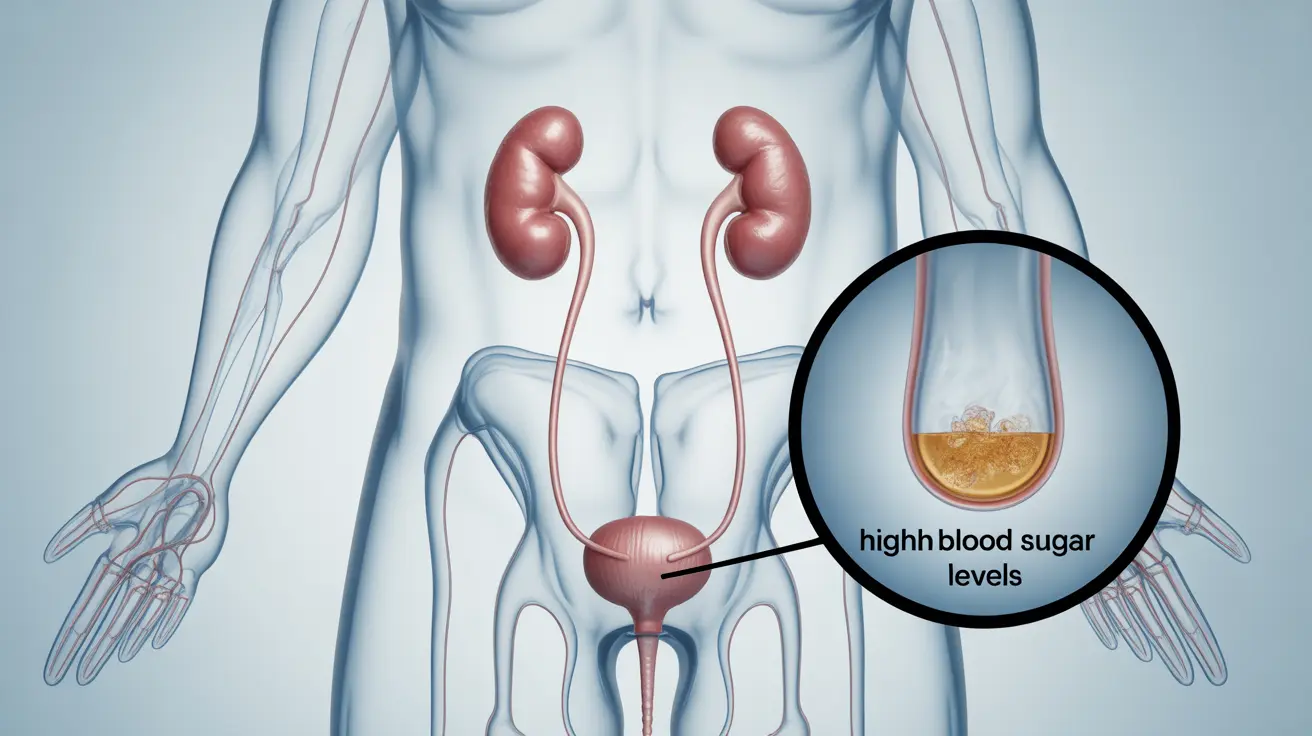When you notice cloudy urine and have diabetes or suspect you might have diabetes, it's important to understand the connection between these two conditions. Cloudy urine can be a significant indicator of various health issues, particularly in people with diabetes, and understanding its causes can help you take appropriate action for your health.
In this comprehensive guide, we'll explore the relationship between diabetes and cloudy urine, discuss various causes, and provide important information about when to seek medical attention.
The Connection Between Diabetes and Cloudy Urine
Diabetes can affect urine appearance in several ways, primarily due to its impact on blood sugar levels and kidney function. High blood sugar levels can lead to various changes in urination patterns and urine composition, potentially resulting in cloudiness.
How Diabetes Affects Urination
People with diabetes often experience increased urination frequency due to their body's attempt to eliminate excess glucose. This can lead to:
- Increased thirst and frequent urination
- Concentrated urine due to dehydration
- Higher risk of urinary tract infections
- Presence of ketones in urine during poor blood sugar control
Common Causes of Cloudy Urine in Diabetes
Several diabetes-related factors can contribute to cloudy urine:
High Blood Sugar Levels
When blood glucose levels are elevated, the kidneys work harder to filter excess sugar from the blood. This can result in more concentrated urine that appears cloudy.
Urinary Tract Infections
People with diabetes are more susceptible to UTIs due to elevated blood sugar levels creating an environment where bacteria can thrive. These infections often cause cloudy, strong-smelling urine.
Kidney Problems
Diabetes can affect kidney function over time, potentially leading to protein in the urine (proteinuria), which can cause cloudiness.
Prevention and Management
To prevent and manage cloudy urine related to diabetes:
- Stay well-hydrated by drinking plenty of water
- Maintain good blood sugar control
- Practice proper hygiene
- Monitor urine appearance regularly
- Follow your diabetes management plan carefully
When to Seek Medical Attention
Consult a healthcare provider if you experience:
- Persistent cloudy urine lasting more than a few days
- Pain or burning during urination
- Fever or back pain
- Blood in your urine
- Increased thirst and frequent urination
Frequently Asked Questions
What are the typical symptoms of diabetes that can cause cloudy urine, and how can they be managed?
The main diabetes symptoms affecting urine include increased urination frequency, excessive thirst, and high blood sugar levels. These can be managed through proper diabetes treatment, including medication adherence, blood sugar monitoring, and staying hydrated.
How does diabetes increase the risk of urinary tract infections (UTIs), and what are the signs of a UTI?
Diabetes increases UTI risk by creating high-sugar environments where bacteria thrive. Common UTI signs include cloudy or dark urine, burning during urination, frequent urination, and lower abdominal pain.
What are some common causes of cloudy urine besides diabetes, and when should I seek medical attention?
Common causes include dehydration, kidney stones, infections, and certain medications. Seek medical attention if cloudiness persists, is accompanied by pain, fever, or blood in urine.
Can cloudy urine be an early sign of diabetes, and what tests should I undergo if I suspect diabetes?
While cloudy urine alone isn't typically an early sign of diabetes, when combined with increased thirst and frequent urination, it warrants testing. Key tests include fasting blood sugar, A1C, and urinalysis.
How can I prevent or treat cloudy urine caused by dehydration or urinary tract infections?
Prevent cloudy urine by staying well-hydrated, maintaining good hygiene, and controlling blood sugar levels. UTIs typically require antibiotic treatment prescribed by a healthcare provider.




